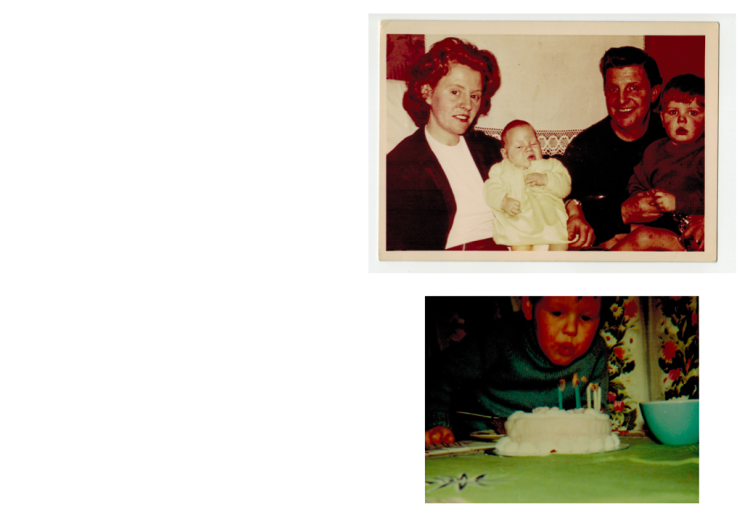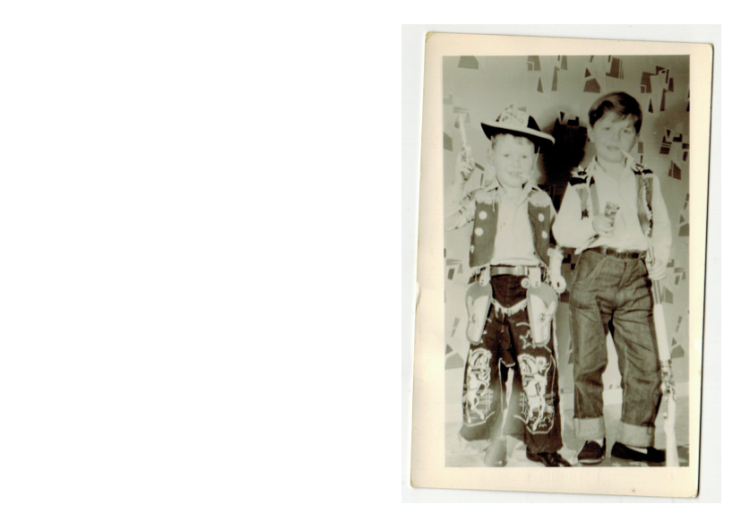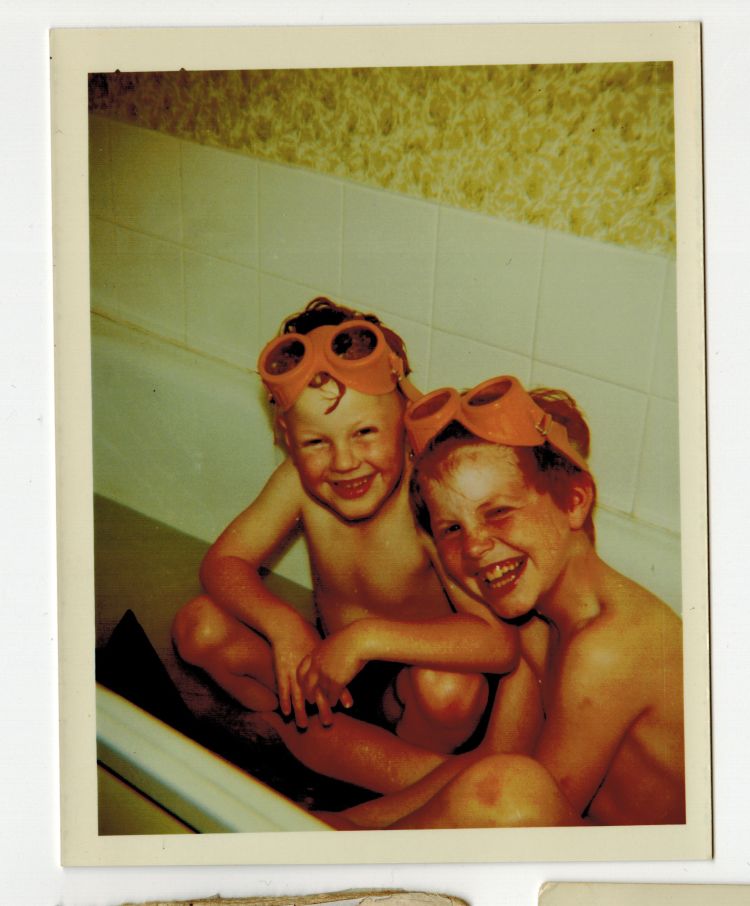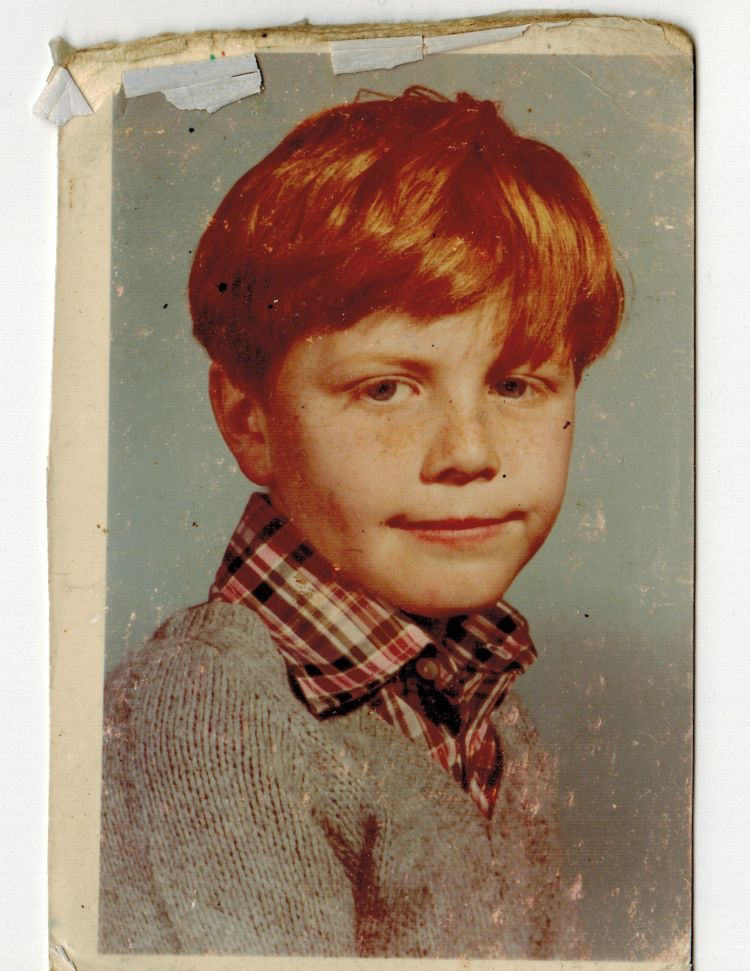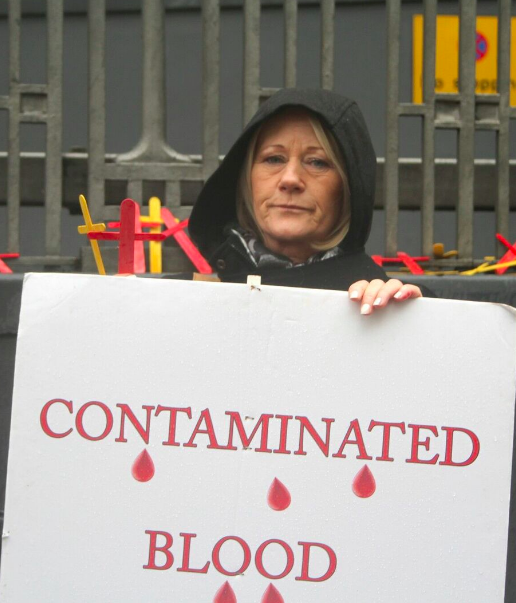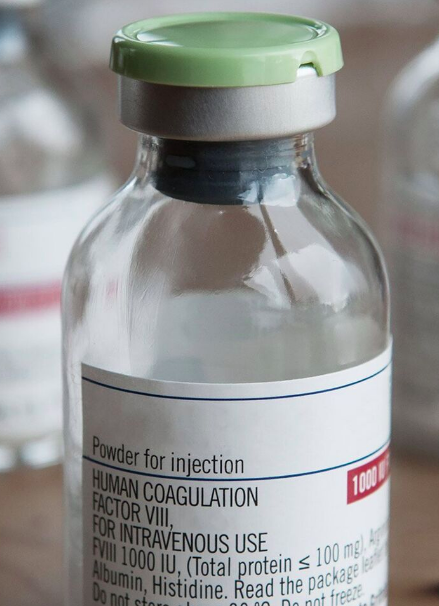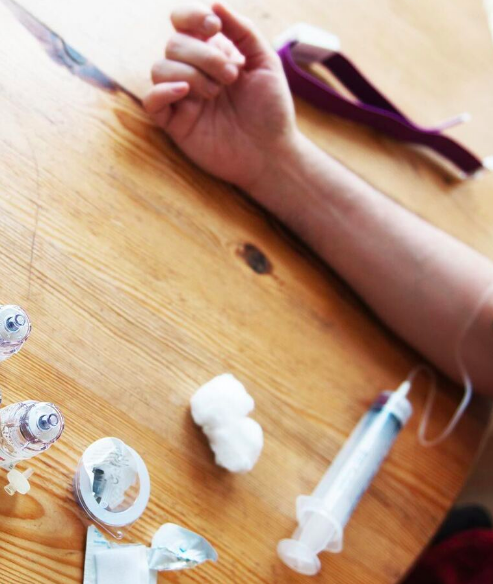Tainted Blood
Victims of what has been called 'the worst treatment disaster in NHS history' get a final shot at justice due to a new Public Inquiry
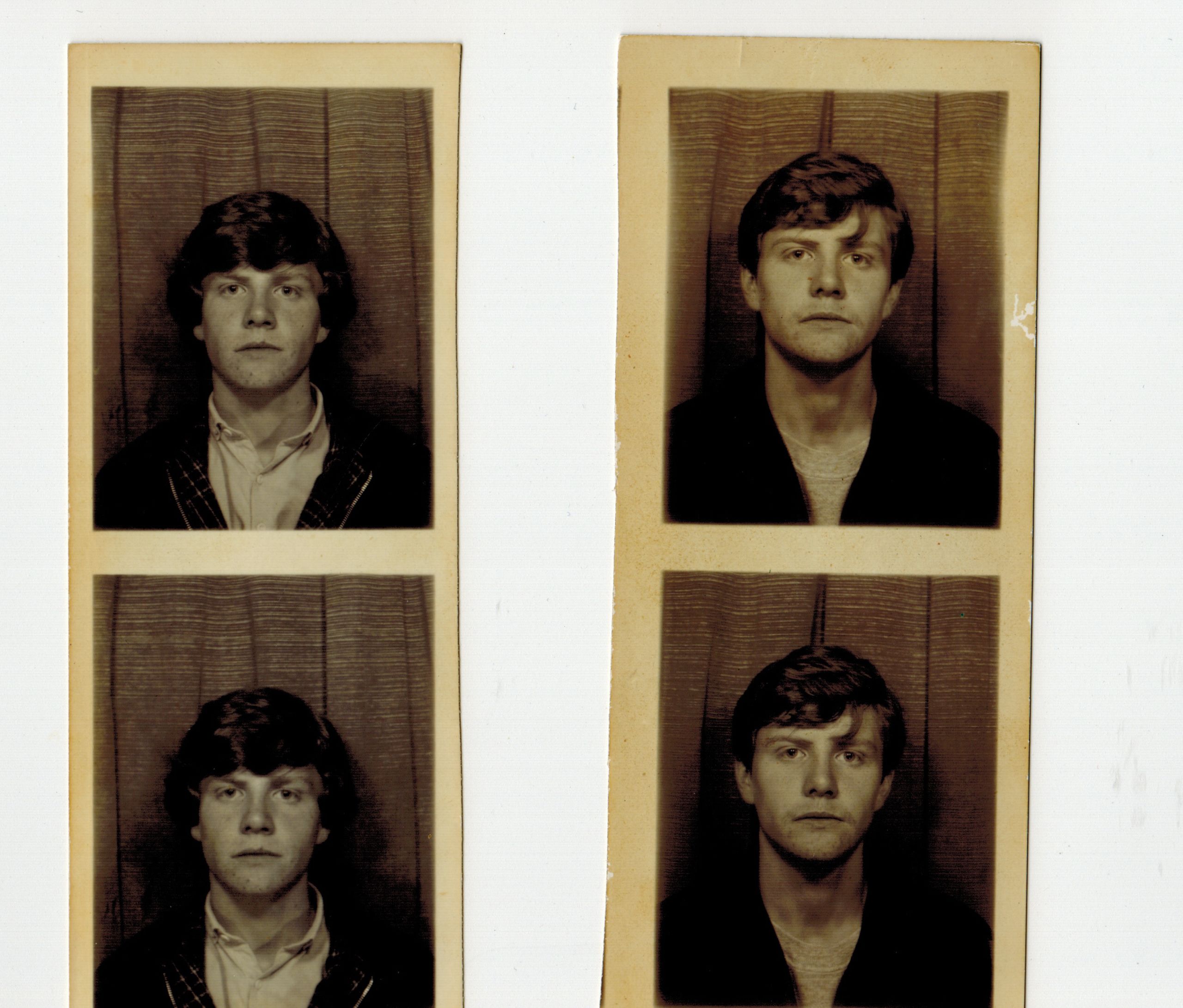
A public inquiry into the 'Infected Blood’ scandal has been launched to unearth why thousands of NHS patients were given blood products infected with HIV and Hepatitis C. From the 1970’s through to the 1980’s, just under 5,000 British Haemophiliacs were given contaminated blood products labelled ‘Factor VIII’.
Haemophilia is an inherited disease which affects the way blood clots. The NHS define it as: 'an inherited genetic mutation, which mainly affects males. A genetic mutation is a permanent alteration in the DNA sequence that makes up a gene. This means that some of the body's processes won't work in the normal way.'
Life for many Haemophiliacs come with warnings, but not just about playing sports, or lifestyle decisions. For some Haemophiliacs infected by the scandal, this meant losing careers, friendships, and countless health problems.
__________________________________________________________
Jeffrey Hannah was born in Huyton, Liverpool on the 17 January 1962. Some years later when he was just a small child, his parents Lilian and George discovered he had Haemophilia Type A.
Deborah Hannah, a family friend and later relative by marriage, recalled what it was like for Jeff when they were young:

Quote from Deborah Hannah, Jeff's childhood friend.
Quote from Deborah Hannah, Jeff's childhood friend.
Around eight years later, the NHS began marketing a revolutionary treatment. From use in blood disorders to life saving blood transfusions, a demand skyrocketed for 'Factor VIII'. With the consequences of the then-miracle-drug unknown, many Haemophiliacs were administered the product intravenously.
In 2002, Jeff received a diagnosis that many Haemophiliacs like him would receive at some point in their lives. He had Hepatitis C.

A letter received by Jeff in January 2016, which displays the usual disclaimer about the scandal.
A letter received by Jeff in January 2016, which displays the usual disclaimer about the scandal.
But how did the blood become contaminated?
Contracting Hepatitis C is described by the NHS as mostly occurring 'in people who inject drugs or have injected them in the past.'
As demand grew for Factor VIII, the resources became increasingly limited. The National Health Service began to import the majority of the blood from the United States to continue the treatment of Haemophiliacs successfully.
However, the companies in the USA supplying the blood targeted high risk groups such as drug addicts, sex workers and prisoners for donations. For a long time, the blood was left untreated.
As a result, Haemophiliacs like Jeff were left scarred.
Jeff was my father's cousin, and my mother's lifelong friend. It was only after he took his own life in June 2018 that the story of this negligence came to light.
The stigma surrounding Hepatitis C and HIV has caused an unnecessary shame in victims of the Infected Blood scandal.
In countries such as Japan the pharmaceutical companies involved were sued. One case in France even resulted in two senior parliamentary officials being convicted of negligence.
Public Inquiry Lead for the Haemophilia Society, Debra Morgan, helps listen to and collect the voices of those affected to properly represent their experiences in the proceedings. Debra made one outcome of the Inquiry clear: "It’s vitally important that the general public understand the impact and the devastation of this."
"I can’t say that there is one voice because there isn't, there's a range of voices, opinions, views, wants and needs that people want from the Inquiry. The Society wants to be able to represent all of our members."
Debra has worked in Haemophilia for 8 years now, and understands the depth of the scandal. Alongside managing the Societies relationship with the members, the Haemophilia Society works to represent the needs of its members at Parliament, and meets with charities and the families of those affected.
Similar to Jeff's secrecy, their members don't always want to be named. "We have a lot of people who are frightened of coming forward, who want anonymity. We’ve had generations with us, and throughout that we have kept their anonymity and they trust us to do that throughout the Inquiry.
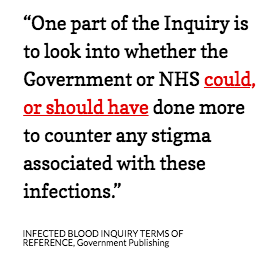
Excerpt from the Inquiry's Terms of Reference.
Excerpt from the Inquiry's Terms of Reference.
A woman who was given a blood transfusion of Factor VIII after giving birth wished to remain anonymous when she shared her story.
"I felt like something had been stolen from me. I was diagnosed with Hepatitis C just six years ago. I feared telling my family, my friends. Your first thought when finding out someone has Hep C is never 'it must've been negligence'. We judge as people."
"It’s difficult because this has been delayed for so many years, people have been through horrendous things, but also the time length that people have waited for justice to come has been awful; there’s a lot of raw emotion, and a lot of compressed emotion that people have buried deep down. Trying to find the right way to support people is a challenge because not everybody wants the same thing.
It's in the Haemophilia Society's best interests to get across that this is 'not just a numbers game'. "I think that’s most important thing for us, which is hard because we don’t want to be exploiting people in their anguish and making a circus for what people have been through."

Debra Morgan, Public Inquiry Lead for the Haemophilia Society
Debra Morgan, Public Inquiry Lead for the Haemophilia Society
A view shared with a lot of campaigners is that this may be the last chance to get to the truth. Debra says, "There is hope from that perspective, slightly dampened by cynicism. some of the lessons that can be learnt from this could translate beyond this community."

